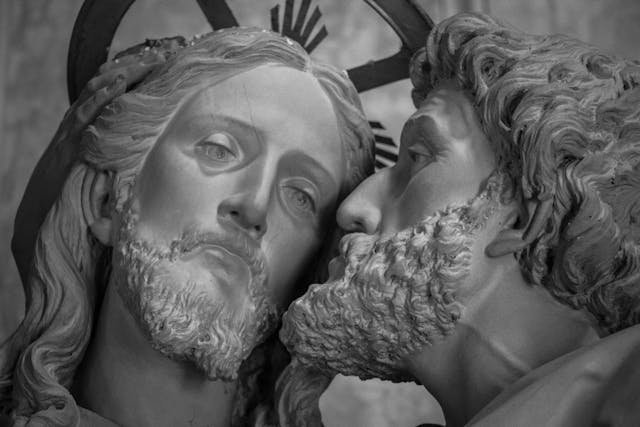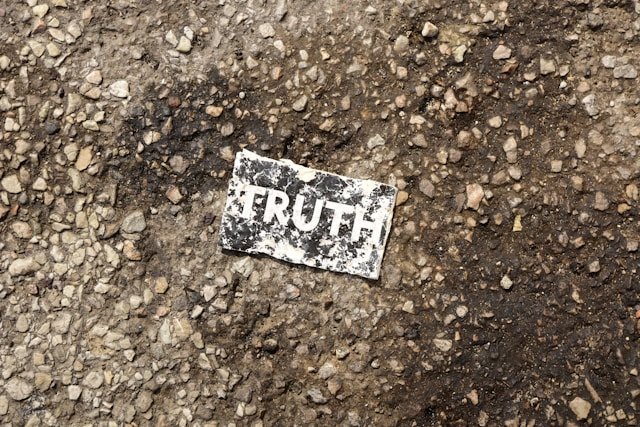
Those words burn in my chest like embers, relentless and furious, because too many voices rise in places they don’t belong, voices that have never known the weight of a parent’s sorrow, the hollow silence of a room that once echoed with a son’s laughter. Yet they speak. They judge. They take sides as if love is a courtroom and loyalty is negotiable.
My parents buried their son, their child, and instead of hands to hold them up, they were met with knives in their backs. “Friends” who whispered condolences with one breath and venom with the next. People who dared to declare who hurt the most, who deserved the most sympathy, as if grief is a competition and betrayal is the prize. Meanwhile, the person who spent years tearing their son’s name down now plays the grieving widow. But the truth doesn’t disappear just because liars shout louder. There are questions without answers. And there are parents who should not have to defend their right to mourn while others rewrite history with forked tongues.
This is for the betrayers. The ones who choose sides when they should have chosen silence. The ones who lick their lips at tragedy, eager to dissect a family’s pain as if it’s gossip to be spread. You do not get to decide whose grief matters. You do not get to carve your judgments into wounds you did not earn. So unless your love is real, unless your loyalty is unshakable, be quiet. This sorrow is not yours to shape.
Don’t Preach Faith While Standing on a Grave You Helped Dig

Where were you when the whispers started? When the lies slithered through conversations like poison, and his name was dragged through the dirt, where was your voice then? You call yourselves friends, believers, people of faith, but when it was time to stand up, to defend, to fight for the truth, you chose silence. Worse, you nodded along. You let the rumors settle like dust on his shoulders, adding weight to the burden he already carried. You let her strip him down, piece by piece, in front of everyone, and you did nothing.
Faith? Don’t speak to me about faith. Faith doesn’t stand by while an innocent man is broken. Faith doesn’t watch evil unfold and call it neutrality. Faith doesn’t shake its head and say, “It’s not my place,” when someone’s name is being murdered in broad daylight. You want to quote scripture now, to offer hollow prayers and empty platitudes, but where was your righteousness when he was still here to hear it?
And now he’s gone. Now the grave holds what’s left of him, and suddenly, you remember how to speak. Suddenly, you have opinions, judgments, sympathy for the very hands that helped bury him. You stand at his resting place, preaching about God’s will and healing, when you were part of the wound. How dare you. How dare you open your mouth now, when you had every chance to use it before and chose instead to let the fire burn.
This is the cost of betrayal, not just the act, but the silence that enabled it. Not just the lies, but the people who let them live. You don’t get to mourn him now. Not when you allowed his name to be mourned long before his body. So if your faith doesn’t include justice, if your love doesn’t include loyalty when it matters most, then keep it. He deserved better in life. And in death, he sure doesn’t need your hypocrisy.
Grieving in a Room Full of Betrayers

Grief is heavy enough without the weight of betrayal crushing your ribs every time you try to breathe. Yet here we are surrounded by the same faces that once smiled in our home, broke bread at our table, and called themselves family, only to turn their backs when it mattered most. They watched as my brother was stripped of his dignity, his name twisted into something ugly, and they said nothing. Now they sit in mourning clothes, shaking their heads, whispering “what a tragedy,” as if they weren’t part of the reason it hurts this much. The audacity of their presence is suffocating. They don’t get to play mourners now. Not when they were accomplices in the destruction of a life they claimed to love.
There is a special kind of loneliness that comes from grieving among betrayers. It’s realizing that the hands that should be holding you up are the same ones that helped push you down. They offer hollow condolences with practiced solemnity, but their words are empty, just like their loyalty was. Do they even remember their silence? Do they feel the shame of it, or have they rewritten history in their minds, casting themselves as innocent bystanders instead of active participants? We are expected to accept their sympathy, to nod and thank them for their kindness, when all we want to do is scream: Where was this kindness when he was still alive?
So we grieve in silence, choking down our rage because the world prefers polite sorrow over righteous anger. But I will not forget. I will not let his memory be another casualty of their indifference. Let them sit in their guilt. Let them carry it. Because while they may have chosen the easy path of betrayal, we will choose the harder one, remembering him truthfully, loving him fiercely, and refusing to let his story end where their lies began.
The Truth Does Not Die With the Silent

Grief is not just sorrow, it is a reckoning. It strips away the lies we tell ourselves about loyalty, about justice, about who will stand with us when the world turns cruel. And when that grief is compounded by betrayal, it becomes something else entirely: a fire that burns away all illusions, leaving only the raw, unflinching truth. These betrayers, these fair-weather friends, these silent accomplices, they thought their whispers would fade, that their failure to defend would be forgotten. But the truth does not die with the silent. It waits. It lingers in the spaces between their hollow words and rehearsed sympathies, in the quiet fury of those who refuse to let love be rewritten into something convenient.
We are left with this: a choice. To let their betrayal define our suffering, or to let it fuel our defiance. To let their lies become the obituary, or to carve our own. I choose defiance. I choose memory. I choose to speak his name not as they diminished him, but as he truly was, loved, worthy, and unbroken by those who failed him. Let them carry the weight of what they did. Let them live with the knowledge that no amount of forced pity can wash away their complicity. And let them learn, too late, that some silences are louder than graves.
In the end, the only thing stronger than betrayal is the love that outlives it. And that, that will never be silenced.
— Banchu (Nama)